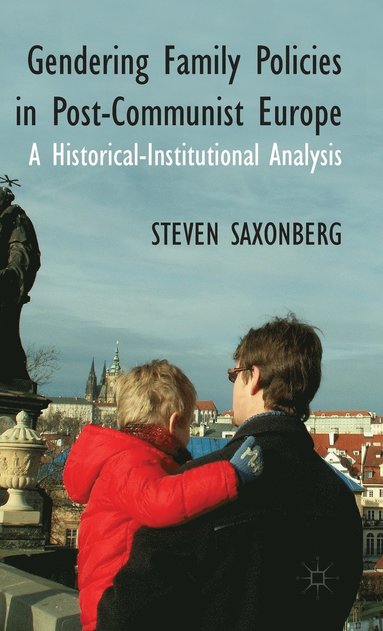
- Format
- Inbunden (Hardback)
- Språk
- Engelska
- Antal sidor
- 292
- Utgivningsdatum
- 2014-06-23
- Förlag
- Palgrave Macmillan
- Illustratör/Fotograf
- 292 p IX
- Illustrationer
- IX, 292 p.
- Dimensioner
- 224 x 144 x 21 mm
- Vikt
- Antal komponenter
- 1
- Komponenter
- 1 Hardback
- ISBN
- 9780230299955
- 485 g
Gendering Family Policies in Post-Communist Europe
A Historical-Institutional Analysis
- Specialorder (osäker tillgång). Skickas från oss inom 11-20 vardagar.
- Fri frakt över 249 kr för privatkunder i Sverige.
Passar bra ihop
De som köpt den här boken har ofta också köpt The Courage To Be Disliked av Ichiro Kishimi, Fumitake Koga (häftad).
Köp båda 2 för 702 krKundrecensioner
Recensioner i media
This is an empirically rich and thoughtful account of the recent and less recent history of family policies in four Central European countries as well as three traditionally capitalist societies as points of comparison. In this engaging historical-institutional analysis of the dynamics of post-communist welfare states, a first in this field, Saxonberg stresses the importance of historical trajectories and the cultural/ideological context in shaping social policy. The contentious connections among family policies, women's rights, nationalist sentiments and democracy also emerge from the discussion. - Eva Fodor, Department of Gender Studies, Central European University, Hungary
Övrig information
Steven Saxonberg is a Professor of Sociology at CESES (Center for Social and Economic Strategies) at the Charles University, Czech Republic and Guest Professor of Political Sociology at Dalarna University College, Sweden.
Innehållsförteckning
1. Introduction 2. The Transition in Central Europe Revisited 3. Historical-Institutional Development 4. The Influence of International Organizations 5. Institutional Framework 6. Attitudes of the Population 7. Strategies and Political Opportunities for Women's Organizations 8. Political Parties and Policy-Makers 9. Conclusion
Du kanske gillar
-
Animal Farm
George Orwell
Häftad -
Hillbilly Elegy
J D Vance
Häftad -
The Way Home
Mark Boyle
Häftad -
Way Of Kings
Brandon Sanderson
Inbunden


